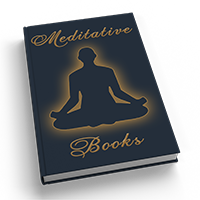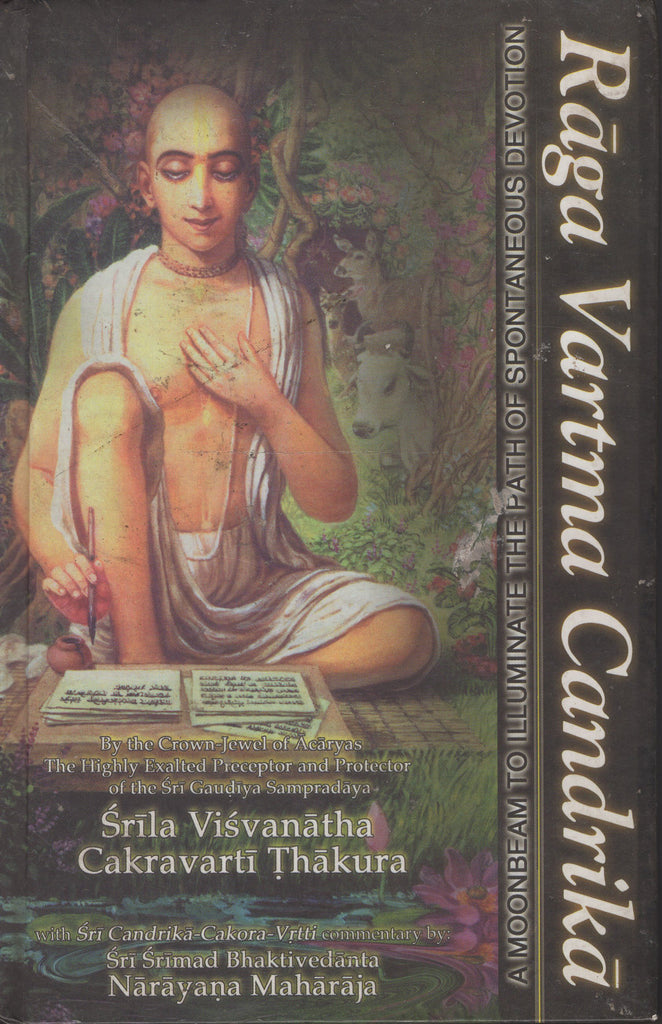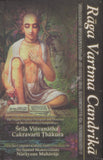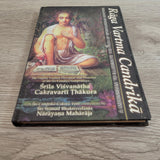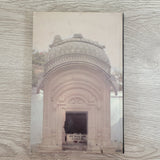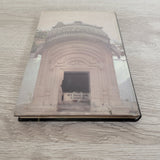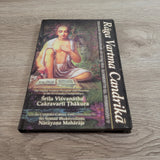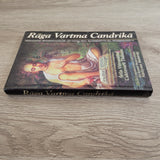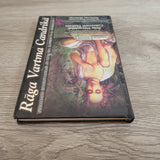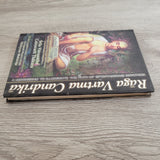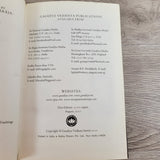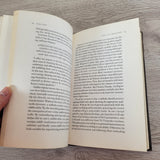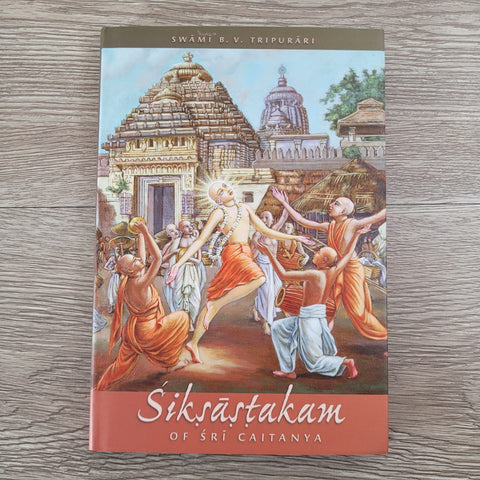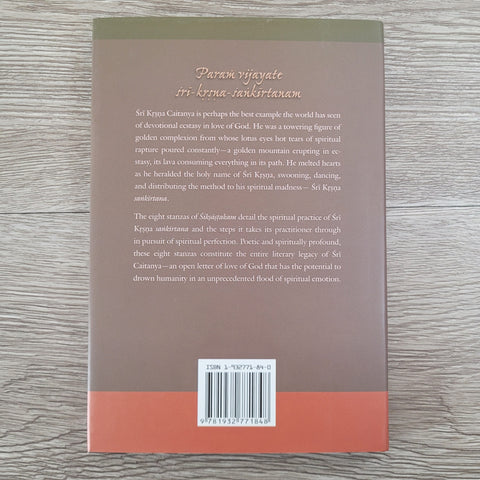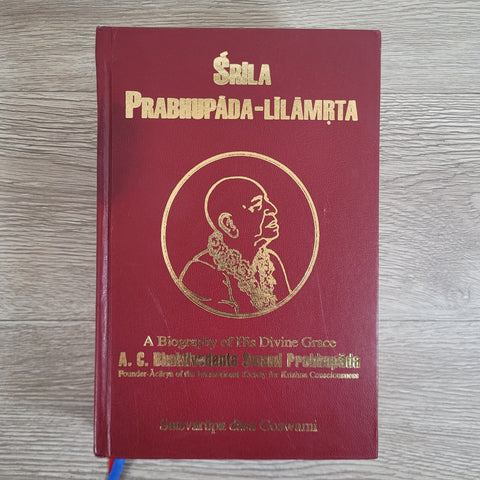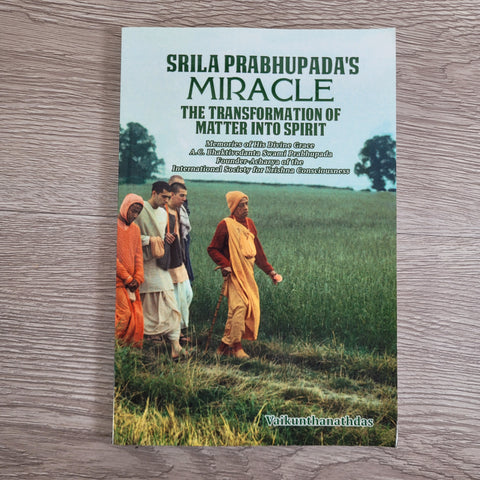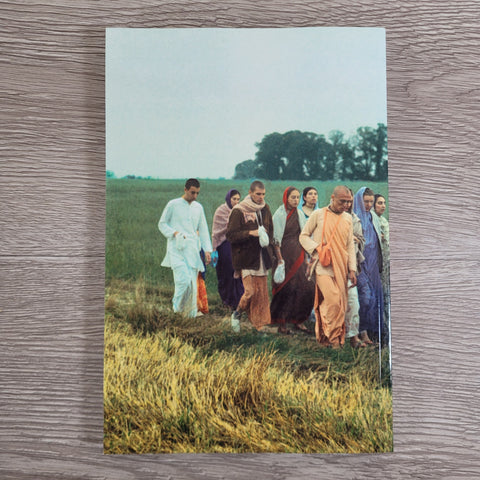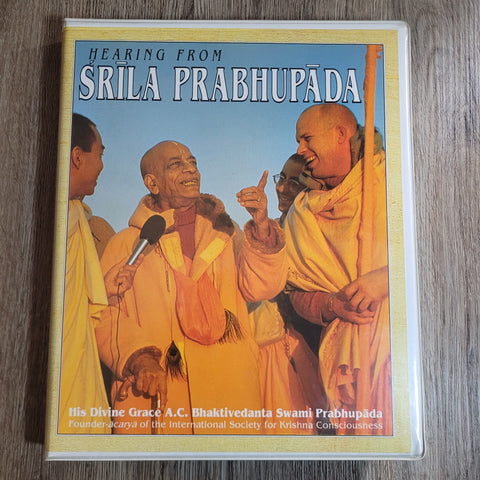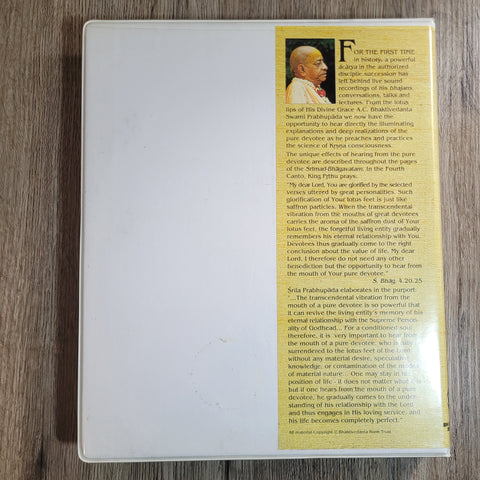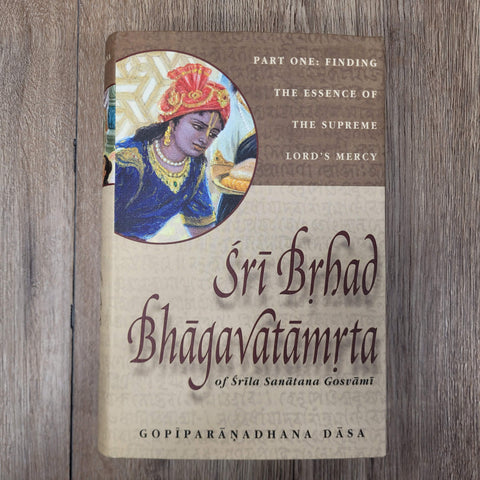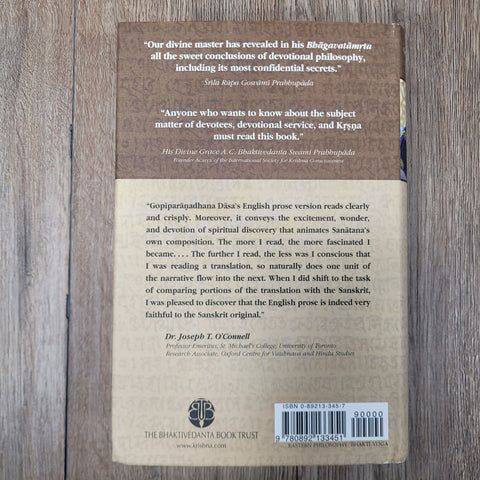Raga-vartma-candrika by Bhaktivedanta Narayana Gosvami Maharaja
- Sold By: Montecinos Used Books
- Categories Bhakti Yoga, Hinduism
- Type: Books:Nonfiction
Raga-vartma-candrika
by Sri Srimad Bhaktivedanta Narayana Gosvami Maharaja
By the unlimited mercy and inspiration of param- aradhya nitya-lila pravista om visnupada astottara- sata Sri Srimad Bhakti Prajnana Kesava Gosvami Maha- raja, I am infinitely pleased today to see that the English rendition of Raga Vartma Candrika is going to be published. Srila Visvanatha Cakravarti Thakura, the crown prince of illustrious teachers amongst the Gaudiya Vaisnava acaryas, is the author of this book. Although in size this text is very small, from the perspective of its exalted subject matter, it is very great.
In his Sri Bhakti-Rasamrta-Sindhu-Bindu, Sripada Visvanatha Cakravarti Thakura has briefly explained the path of raganuga bhakti. He has given a more detailed description of the same subject matter in this book, presented in two illuminating beams of light. In the First Illumination, he ascertains the paths of vaidhi and raganuga-bhakti - vaidhi is performed under shastric regulations, and raganuga is inspired by greed. In raga-marga, in spite of the rise of greed, shastric reasoning is relied upon. In other words, when one follows vidhi-marga, being inspired by greed, it is raganuga, and when one follows vidhi-marga, being disciplined by rules and regulations, it is indeed ser- vice in vidhi-marga. Seva which disregards rules and regulations creates turmoil. The five limbs of raganuga-bhajana are:I ) svabhista-bhava-maya, saturated with one's cherished mood - dasya, sakhya, and so on; ) bhava-sambandhi, related to one's cherished mood - sravana, kirtana, smarana, etc., of nama, rupa, guna, lila and so on, observing Ekadasi, Janmastami, and other such vratas, hearing discourses on the Bhagavatam, and so on; 3) bhava- anukula, favorable to one's cherished mood - wearing wooden Tulasi mala, tilaka, decorating oneself with stamps of the holy name and the Lord's lotus feet, etc.; 4) bhava-avirudha, not opposed to one's cherished mood - serving cows, pipala and myrobalan trees, brahmanas, etc., and especially the Vaisnavas; 5) bhava-virudha, detrimental to one's cherished mood - abangrahopasana (to consider oneself as non-different from the object of worship), nyasa (various elaborate practices for chanting mantras and doing arcana), mudras (different procedures of intertwining the fingers during arcana), Dvaraka and mahisi-dhyana (process of worship of Dvaraka and meditation on the queens).
The Second Illumination presents concepts in relation to Sri Krsna' s aisvarya and madhurya. Whether great opulence is apparent or not, if the mood of human-like pastimes is maintained, then it is called madhurya, sweetness; and if only aisvarya is manifesting, transgressing the moods of nara-lila, then it is aisvarya. Some devotees are steadfast in the conception of aisvarya-jnana, whereas devotees in madhurya-jnana, even when confronted with Krsna's majesty, will experience no fear and remain firmly fixed in their own mood. Also described are the principles of Krsna' s sarva-jnatta (omniscience) and maugdhata (bewilderment), etc., svakiya and parakiya-tattva, the types of the cherished eternal forms actually attained by the raganuga-bhaktas upon ascending to the realm of prema, the authority of Yogamaya, and so on.
- Hardcover
- First Edition, August 2001
- Publisher: Gaudiya Vedanta Publications
- Language: English
Book Condition: Used, Good: The book is pre-owned and survived a fire but is in good condition. The top area of the cover has ash marks, but it didn't mark the inner pages, and therefore do not compromise the legibility or understanding of the text in any way. The back cover has some stains. There is no dust cover. Please look carefully at the pictures for more information.
